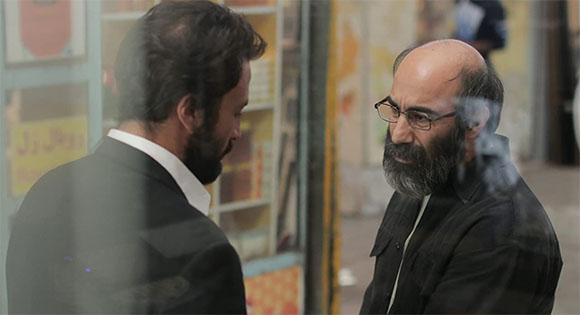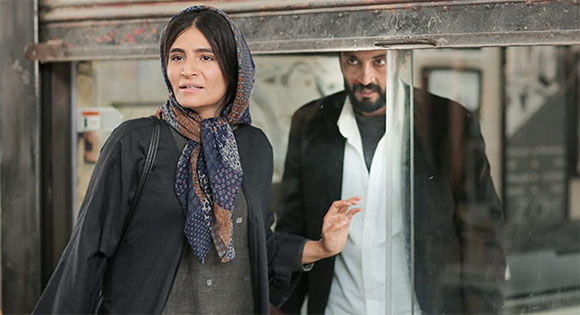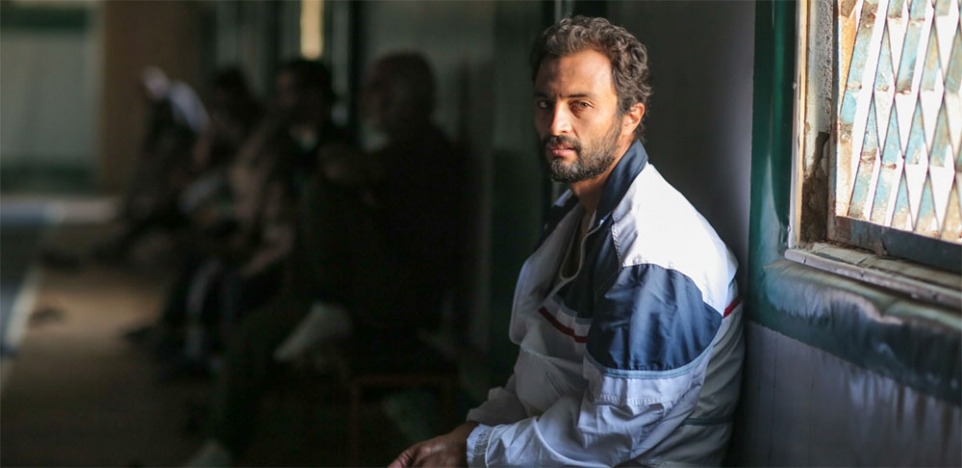The mainstream media love an impeccable hero. Even the most skeptical society tends to gobble up cheaply manufactured human interest stories, as if they’ll fill the deep void cleaved when so much of our news feeds are filled with horrific events and widening divisions. We hunger for simple, easily consumable good news.
Two-time Oscar winner Asghar Farhadi isn’t interested in what we want and instead fills his films with increasingly complex interpersonal and systemic layers that trouble our desire to see in black and white. Though the title of his latest moral quandary is characteristically plain and unpoetic, the film itself is anything but straightforward. Humming with vibrant, raw energy just beneath its surface, A Hero challenges viewers to follow its characters into gray areas far more true to human experience than most might like to admit. It was awarded the Grand Prix at this year's Cannes Film Festival and has been chosen as Iran's official Oscar entry for 2022.

In the Iranian city of Shiraz, placid prisoner Rahim (Amir Jadidi) has languished in debtor’s prison for three years, unable to pay his brother-in-law Bahram (Mohsen Tanabandeh) back after receiving a business loan. A glimmer of hope comes to him when his girlfriend Farkhondeh (Sahir Goldoust) finds a bag of gold coins at a bus stop. A plan is quickly hatched to sell the coins to get the cash Rahim needs while he is out on a few days’ leave. When his conscience kicks in, Rahim decides to attempt to return the coins to their owner and winds up a locally celebrated media star, though some are immediately suspicious of his rise to fame. This being a Farhadi-orchestrated affair, it’s here that things begin to unravel.
As in the award-winning A Separation and The Salesman, A Hero’s characters must navigate maddening bureaucracy, questionable choices, and long-held grudges. They confront their best sides and their shadow sides, and everyone’s morals gradually grow more and more muddied. Like its main character, A Hero is deceptively passive in its presentation, rolling out methodically and calmly, but offering unavoidable flashes of the tensions simmering at its heart.
At the height of the public’s praise of Rahim, a charity foundation decides to honor him at a public ceremony, only to later reverse their decision. This incident reveals society's nagging need for purely heroic figures while pointing up the fact that it is nearly impossible for anyone to honestly embody what is required of such a label.

Farhadi cares deeply for the wounded human beings who populate his crowded stories. He has less compassion for the systems that keep everyone from exhibiting their most caring, compassionate selves. Though the specific plot points and societal mores of A Hero might be foreign to many, every step taken, every decision made is analogous to countless large and small dilemmas inherent to the universal human experience. As little lies spin into big deceits, as manufactured images unspool into starkly spotlit truths, the film grows in its empathy for its characters. The conflicting shades added to Rahim’s profile make him less admirable but more lovable. The lack of discernible and dismissable villains invites engaged reflection that a classic hero’s quest never attempts to approach. There are no real heroes here, just frail human beings struggling with their emotions and the sharp edges of right and wrong,
By the time A Hero completely combusts, it has taken Rahim through the wringer, but what truly ends up skewered are the scattershot systemic demands of a society that forces the good to not always be so good in order to get what they need. Social media, charities seeking celebrity support, the awful ouroborus of the debt-repayment cycle chew up and spit out many of A Hero’s well-meaning souls, but the film chews up and spits out those systems themselves. It begs all witnesses to ask questions of our societal status quos, to challenge our casually accepted assumptions, and to wonder what a world with no unadulterated heroes really needs from us, imperfect and complicit as we are.
